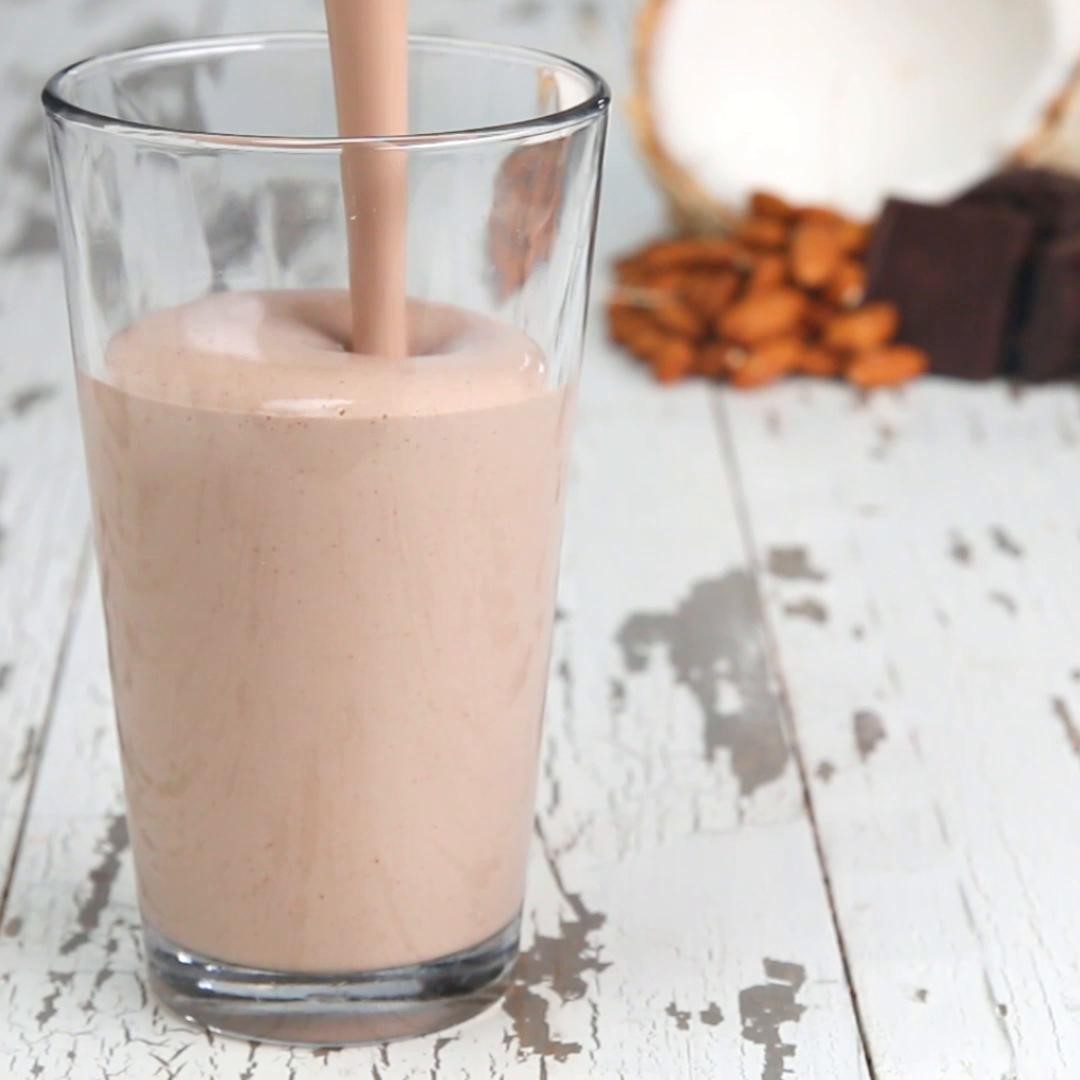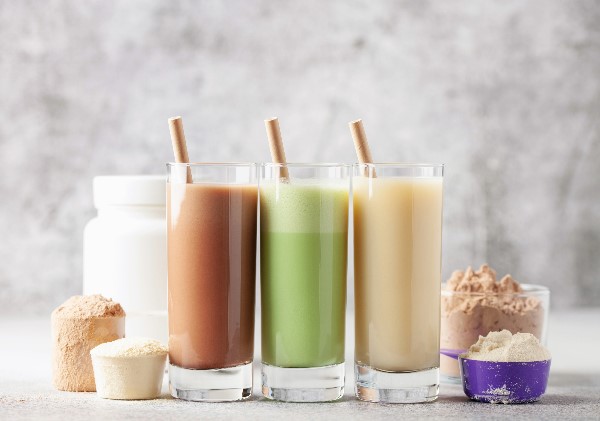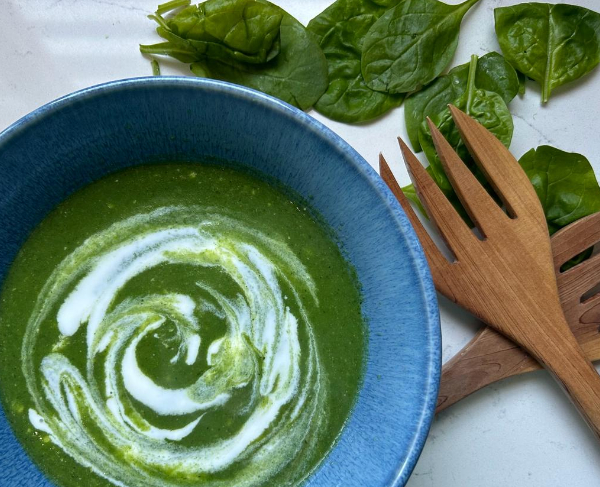Homemade Protein Shake Recipes
“Delicious and nourishing options for lactose- and artificial sweetener-intolerant patients during the full liquid diet after bariatric surgery”

After bariatric surgery, patients often experience rapid weight loss in the first few months. However, this weight loss can sometimes lead to unintended loss of muscle mass. To prevent this, it’s important to consume enough protein, which helps preserve lean body mass. Unfortunately, many patients have difficulty consuming enough protein-rich foods after surgery due to intolerance.
Nutritional guidelines suggest a minimum protein intake of 0.36 grams per pound of body weight per day (for example, a person whose weight is 200 lb. requires minimum 72 g of protein, calculated as 200*0.36 = 72). Protein needs for patients who work out regularly and vigorously (after 2 months post-op) are higher, even up to twice as much. Since it can be challenging to meet these targets with regular food alone, liquid protein supplements are recommended, especially in the first year after bariatric surgery.
Patients may experience food intolerance (lactose or artificial sweeteners) in the early post op stages, but it usually improves over time. This can be caused by several reasons, for example, changes in the gut bacterial flora due to taking antibiotics. These changes can affect how your body processes lactose, which is a type of sugar found in dairy products. As a result, consuming dairy products can cause symptoms like constipation, bloating, stomach pain or diarrhea. To manage these symptoms, it’s recommended to avoid dairy products for some time after surgery. This is why instead of using regular protein shakes, we recommend trying lactose-free protein powder or lactose-free protein shakes, especially during the full liquid diet.
To improve tolerance, you should use Lactobacilli supplements (probiotics), which are beneficial bacteria. Based on clinical experience, proper eating techniques, such as chewing thoroughly and eating small portions at each meal can help too.
Fructose, artificial sweeteners, and lactose belong to a group of poorly digested sugars that can cause diarrhea. Polyols, also known as sugar alcohols, are a type of sweetener commonly used as alternatives to sugar in various food products. Examples of polyols include sorbitol, xylitol, and erythritol. These sweeteners are often used in sugar-free or reduced-sugar products because they provide a sweet taste without the same caloric content as sugar and do not significantly impact blood sugar levels.
However, when consumed in large amounts, polyols can have a laxative effect on the digestive system. This occurs because polyols are not fully absorbed in the small intestine, and instead, they pass into the large intestine or colon. In the colon, polyols draw water into the intestines through a process called osmosis. This increased water content in the colon can lead to soft or loose stools and may result in diarrhea.
It’s worth noting that the laxative effect of sweeteners varies from person to person. Some individuals may be more sensitive and experience digestive discomfort even with small amounts, while others may tolerate them well. If you notice changes in your digestion after consuming these types of sweeteners, it’s recommended to switch to natural sweeteners like stevia and monk fruit.
Sometimes, brands label a product as “stevia sweetener,” but upon reading the ingredient list, artificial sweeteners are also identified. Please be mindful of this and always check the ingredient list when purchasing natural sweeteners. The list should only contain the natural sweetener itself or perhaps some natural flavoring, such as vanilla.
Here is an example of what you should be looking for in a good sweetener:
If you’re experiencing difficulties digesting regular protein shakes, these recipes can help you improve protein consumption:
Vegetable soup
- Cook vegetables until soft.
- Mix ½ cup zucchini, ⅔ cup spinach (boiled), ½ cup carrots.
- Blend with 1 ½ cup of chicken broth until smooth.
- Strain to remove fibers.
- Add ½ cup of Fairlife 2% ultra filtered milk (lactose free) (6 grams of protein)
- Add 1 scoop of Genepro plant protein powder (11 grams of protein), mix it in ¼ of a cup of room temperature soup first, then continue adding the remaining soup until well blended.
- A full recipe on average produces 23 oz. Divide it into small portions of 2-3 oz and enjoy them during the day.
Macros per entire recipe (7-8 servings):
Calories: 183 Cals
Fat: 5.8 grams
Carbs: 19.4 grams – 6.1 grams of fiber = 13.3 grams
Protein: 24.3 grams
English Toffee Chocolate Protein Shake
1 cup of sugar-free almond milk
1 scoop of Isopure plant-based chocolate protein powder
½ cup of ice
2 drops of Better Stevia English Toffee Drops
Blend until smooth and enjoy! 😊
Macros per entire recipe (1 protein shake):
Calories: 150 Cals
Fat: 4.5 grams
Carbs: 6 grams – 2 grams fiber = 4 grams
Protein: 21 grams
Raspberry Vanilla Protein Shake
1 cup of sugar-free almond milk
2 scoops of Genepro plant protein powder
½ cup of ice
2 drops of Stevia Select Raspberry flavoring
Blend until smooth and voila! 😊
Macros per entire recipe (1 protein shake):
Calories: 110 Cals
Fat: 2.5 grams
Carbs: 5 grams
Protein: 23 grams
Caramel Macchiato Protein Shake
1 cup of sugar-free almond milk
2 scoops of Genepro plant protein powder
½ cup of ice
2 drops of Sweet Leaf Caramel Macchiato
Blend until smooth and enjoy! 😊
Macros per entire recipe (1 protein shake):
Calories: 110 Cals
Fat: 2.5 grams
Carbs: 5 grams
Protein: 23 grams
Written by Go Light Bariatrics
More From This Category
Pre-Op Diet: Liquid Meal Substitutes & Protein Shakes, Yea or Nay?
Liquid meal substitutes & protein shakes - effective or not? Get insights before your pre-op diet for a successful surgery journey.
Spinach & Zucchini Cream Soup
Delicious Spinach and Zucchini Cream Soup - Perfect for Pre-op and Post-op Diets. Fuel your recovery with this delicious and nourishing dish!



0 Comments